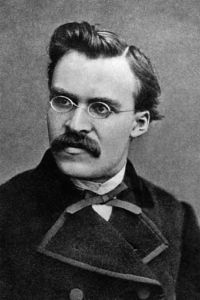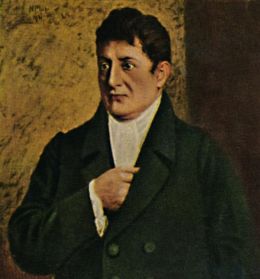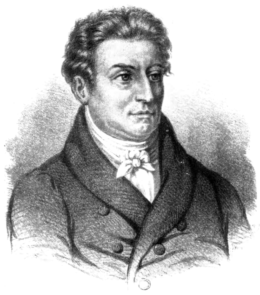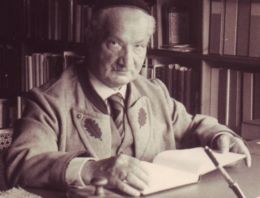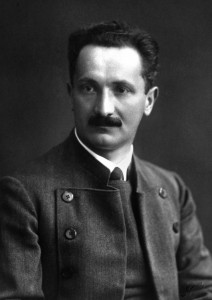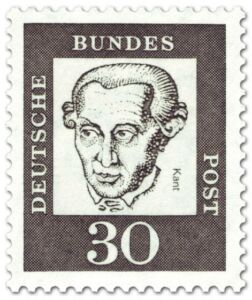As Valentine’s Day approached, I decided that I should perhaps commit myself to the insane asylum that is modern technological courtship. I knew it would be painful and time-consuming, but this year I decided to devote more effort to finding my own modern-day Brünhilde. (more…)
Tag: metaphysics
-
Part 2 of 2 (Part 1 here)
4. The Ascetic Ideal
The third essay that makes up On the Genealogy of Morality is concerned with asceticism, as it has exhibited itself in religion and in philosophy. Nietzsche writes:
I can think of hardly anything that has sapped the health and racial strength of precisely the Europeans so destructively as [the ascetic ideal]; without any exaggeration we are entitled to call it the real catastrophe in the history of the health of Europeans. (more…)
-
6,312 words
Leo Strauss credited Edmund Husserl’s phenomenology as a critical resource for his project of overthrowing modern political thought and vindicating the ancients. This may come as some surprise to readers of Strauss, given the prominence of his critique of historicism, which applies to Husserl as well. But Strauss’s late essay, “Philosophy as Rigorous Science and Political Philosophy”[1] as well as posthumously published lectures and correspondence reveal significant debts to Husserl.
Husserl was not, moreover, a mere “negative influence” — i.e., someone whose ideas Strauss rejected. Husserl was a “positive influence,” meaning that Strauss accepted and incorporated some of his ideas. (more…)
-
Part 3 of 3 (Part 1 here, Part 2 here)
1. Fichte on the Nature of the State
We began to explore Fichte’s political philosophy in the last installment, as expounded primarily in his 1796 work Foundations of Natural Right. It is a basic principle of Fichte’s philosophy that subjectivity, what he calls the “I,” must bring nature under the control of reason. (more…)
-
3,707 words
Mark Gullick is a rarity for Counter-Currents. He is a professional writer and an expert on the English cultural milieu. Mark is mainly interested in current politics, but his interests also include bars, travel, funny stories, philosophy, Tarot, adventure, and professional literature. Let’s get to know him better. (more…)
-
February 18, 2022 Collin Cleary
Fichte as Avatar of the Metaphysics of Presence
1. Introduction: Remind me, why Fichte?
Readers have been asking me why I am devoting multiple essays to J. G. Fichte, an exceedingly difficult and seldom-read German Idealist born in 1762. The simple answer is that these essays are a continuation of my series on Heidegger’s “history of metaphysics.” Having devoted several essays to Kant, I am continuing with Fichte, then will move on to Schelling and Hegel, and then, finally, to Nietzsche. (more…)
-
6,194 words
1. “The circumference of my world is equivalent to the limits of my will.”
In my last essay, we established that for Fichte self-consciousness is an ultimate fact. We saw via our own experiments in introspection that the “I” — this “presence” that says, in effect “I am” — is not simply a feature of the self, it is the self. (more…)
-
1. Martin Heidegger Reads Fichte
On June 25, 1929, Heidegger wrote to Karl Jaspers, “At the present moment I am lecturing on Fichte, Hegel, and Schelling for the first time — and once more a new world opens up before me. (more…)
-
October 22, 2021 William de Vere
La métaphysique de l’écologie intégrale
4,095 words
English original here
Parmi les gens de droite qui s’occupent de la relation de l’homme avec le reste du monde naturel, on trouve un certain nombre d’approches. Il y a les conservatistes anthropocentriques, qui promeuvent l’« utilisation sage » ou la gestion prudente des ressources naturelles pour les générations futures. (more…)
-
October 15, 2021 Collin Cleary
Χάιντεγγερ εναντίον Παραδοσιοκρατών
6,994 words
English original here
Μετάφραση: Λόενγκριν
1. Εισαγωγή
Οι ανήκοντες στη Νέα Δεξιά συνδέονται εν μέρει μέσω κοινών πνευματικών ενδιαφερόντων. Στον κατάλογό μου αυτών των ενδιαφερόντων θα κατέτασσα σε υψηλή θέση τα έργα του Μάρτιν Χάιντεγγερ και εκείνα της Παραδοσιοκρατικής [1] [2] σχολής , ειδικά του Ρενέ Γκενόν και του Ιουλίου Έβολα. Η δική μου δουλειά επηρεάστηκε σε μεγάλο βαθμό τόσο από τον Χάιντεγγερ όσο και από την Παραδοσιοκρατία. (more…)
-
1,569 words
As part of an effort to better understand, and if possible, return to tradition, I’ve been plumbing the depths of folk tales, reading accounts of oral traditions, stories, legends, myths, sayings, epic songs, and other linguistic cultural artifacts of times past. One significant understanding I reached in my explorations is that pre-modern man placed a great value on luck as a factor in success or failure. Contrasting that is the modern view that chance plays a lesser role in the world. But what if the old folks had it right? (more…)
-
June 16, 2021 Collin Cleary
Heidegger’s History of Metaphysics, Part Ten: Kant & the Metaphysics of Presence
6,542 words
All essays in this series available here
1. Introduction
With this, the tenth essay in this series, we have reached a significant milestone. Our journey has taken us from Plato to Kant, and this is the fourth essay on Heidegger’s Kant interpretation. In the last installment, we saw that Kant is struggling to transcend the representationalist paradigm, but that he is inconsistent in this. (more…)

